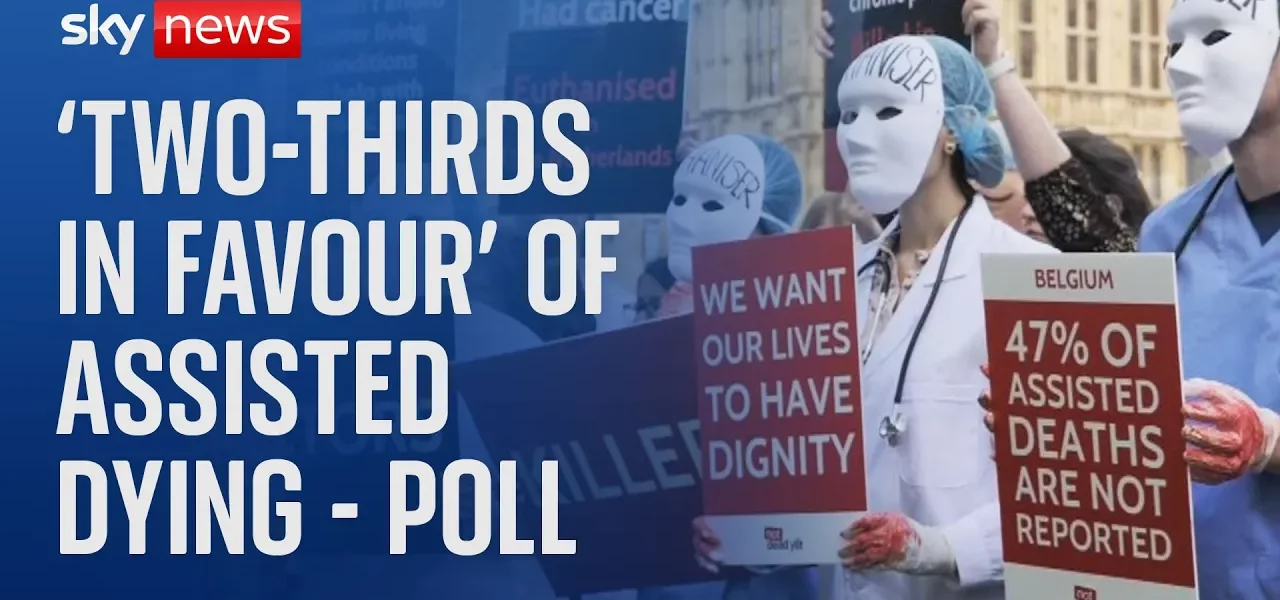Majority Support for Assisted Dying Legislation in England and Wales

Recent polling indicates that almost two-thirds of individuals in England and Wales favor the legalization of assisted dying for terminally ill adults. This article delves into the implications of this data, the upcoming parliamentary discussions, and the ethical considerations surrounding assisted dying.
Introduction
The issue of assisted dying has gained significant attention in England and Wales, with a recent poll conducted by King’s College London revealing that 63% of respondents support its legalization for terminally ill adults. This landmark figure highlights a shift in public sentiment and sets the stage for a crucial parliamentary debate scheduled for next week. This article will explore the implications of this polling data, the history of the assisted dying debate, and the ethical dilemmas that accompany such legislation.
The Polling Data: A Reflection of Public Opinion
The King’s College London poll reveals compelling insights into public attitudes towards assisted dying. Here are the key findings:
- 63% of participants support the legalization of assisted dying.
- 20% oppose the concept.
- 17% remain neutral or have no opinion on the matter.
This data suggests a significant majority of the population favors giving terminally ill adults the choice to end their suffering through assisted dying. It is essential to consider what factors may influence these opinions, including personal experiences with terminal illness, ethical considerations, and cultural beliefs.
The Upcoming Parliamentary Bill
The upcoming bill to discuss assisted dying represents a pivotal moment in the legislative process. Here are some important aspects to note:
Historical Context
This will be the first time the topic has been debated in the House of Commons in nearly a decade. The issue was reignited largely due to the efforts of campaigners, particularly D Meer Ranson, whose advocacy was instrumental in urging the Labour Party to commit to this vote.
Timeline and Expectations
- The bill will be presented to Parliament next week.
- A free vote among Members of Parliament (MPs) is anticipated later this year.
- Outcomes of the vote could significantly affect future legislation surrounding assisted dying.
As MPs prepare to consider this bill, the polling data provides a backdrop against which they must weigh public sentiment. The outcome of this vote could lead to a substantial shift in the legal landscape regarding assisted dying in the UK.
Ethical Considerations Surrounding Assisted Dying
While many support assisted dying, it is crucial to address the ethical concerns raised by opponents of the legislation:
Arguments Against Assisted Dying
Prominent figures like Baroness Tanny Gray Thompson have expressed concerns about the potential risks associated with legalizing assisted dying, particularly for vulnerable individuals. Key arguments include:
- Potential pressure on vulnerable patients to choose assisted dying.
- Concerns about the role of healthcare professionals in such decisions.
- The fear that the value of life might be undermined.
Support for Assisted Dying
On the other side, advocates argue that the right to choose how and when to die is fundamental, particularly for those suffering from terminal illnesses. Key points include:
- Empowerment of patients to make decisions about their own lives.
- The alleviation of unnecessary suffering.
- Respecting individual autonomy and dignity at the end of life.
Conclusion
The upcoming parliamentary discussions on assisted dying will undoubtedly be influenced by the recent polling data showing significant public support. As society grapples with the ethical implications of such legislation, it is vital to consider both sides of the argument. The outcome of this bill could redefine the legal framework surrounding assisted dying in England and Wales. We encourage readers to stay informed about this critical issue and participate in the ongoing conversation about assisted dying rights.
For more insights into related topics, check out our articles on end-of-life care and patient autonomy.
“`




